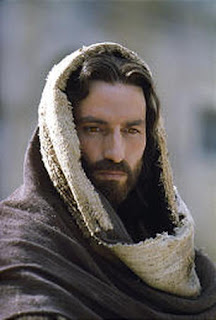A few months ago I downloaded J. Gresham Machen's Christianity and Liberalism into my Kindle reader. A couple of weeks ago I was listening to a podcast that I had downloaded into my Kindle of the Wretched Radio program. During that particular podcast, the host, Todd Friel, mentioned some aspects of Machen's book, and qoute some parts of it. He also reccomended that every Christian should read it. Well, that reminded me that I already had, and prompted me to start read it. I am glad that I did.
Christianity and Liberalism was first published in 1923, but it's contents are very relevant for the Christian of 2011. I agree with Mr. Friel that every true disciple of Christ would benefit from reading this book. Many of the challenges that Prof. Machen was facing in his, liberals with the church who are trying to undermine the central doctrines of historical Christianity, are the same challenges that Christians face today.
One of the main points that Prof. Machen makes in his book is that this is not a battle beweet "conservatives" and "liberal," but it is actually a battle between believers and the unbelievers, who have crept into the church. It is a battle for the heart and soul of the Gospel. In his introduction to the book, Prof. Machen defines the battle in this manner:
"It is this problem which modern liberlism attempts to solve. Admitting that scientific objections may arise against the particularities of the Christian religion -- against the Chrisian doctrines of the person of Christ, and of the redemption through His death and resurrection -- the liberal theologian seeks to rescue certain of the general principles of religion, of which these particularities are thought to be mere temporary symbols, and he regards as constituting 'the essence of Christianity.'
It may well be questioned, however, whether this of defense will prove to be efficacious; for after the apologist has abandoned his outer defenses to the enemy and withdrawn into some inner citadel, he will probably discover that the enemy pursues him even there. Modern materialism, especially in the realm of psychology, is not content with occupying the lower quarter of the Christian city, but pushes its way into all the higher reaches of life; it is just as much opposed to the philosophical idealism of the liberal preacher as to the Biblical doctrines that the liberal preacher ha abandoned in the interests of peace. Mere concessiveness, therefore, will never succeed in avoiding the intellectual conflict. In the intellectual battle of the present day there can be no 'peace without victory'; on side or the other must win.
As a matter of fact, however, it may appear that the figure which has just been used is altogether misleading; it may appear that what the liberal theologian has retained after abandoning to the enemy one Christian doctrine after another is not Christianity at all, but a religion which is so entirely different from Christianity as to be long in a distinct category. It may appear further that the fears of the modern man as to Christianity were ungrounded, and that in abandoning the embattled walls of the city of God he has fled in needless panic into the open plains of a vague natural religion only to fall an easy victim to the enemy who ever lies in ambush there." (emphasis added)
I am still in the middle of reading this book. To be honest, admist other things, I sometimes find myself in the middle of reading up to five books or more at the same time. That is just a personal note about myself.
In the coming weeks I will be sharing you some parts and aspects of Prof. Machen's polemic work. I will also be sharing aspects of Prof. Machen's life that I have learned about and is relevant to the writing and main theme of this book.
Oh, one important note. Since I am reading this book on my Kidle, my references to the book will not have any page numbers.
SELAH
Jude 1:4
For certain people have crept in unnoticed who long ago were designated for this condemnation, ungodly people, who pervert the grace of our God into sensuality and deny our only Master and Lord, Jesus Christ.
Jude 1:4







